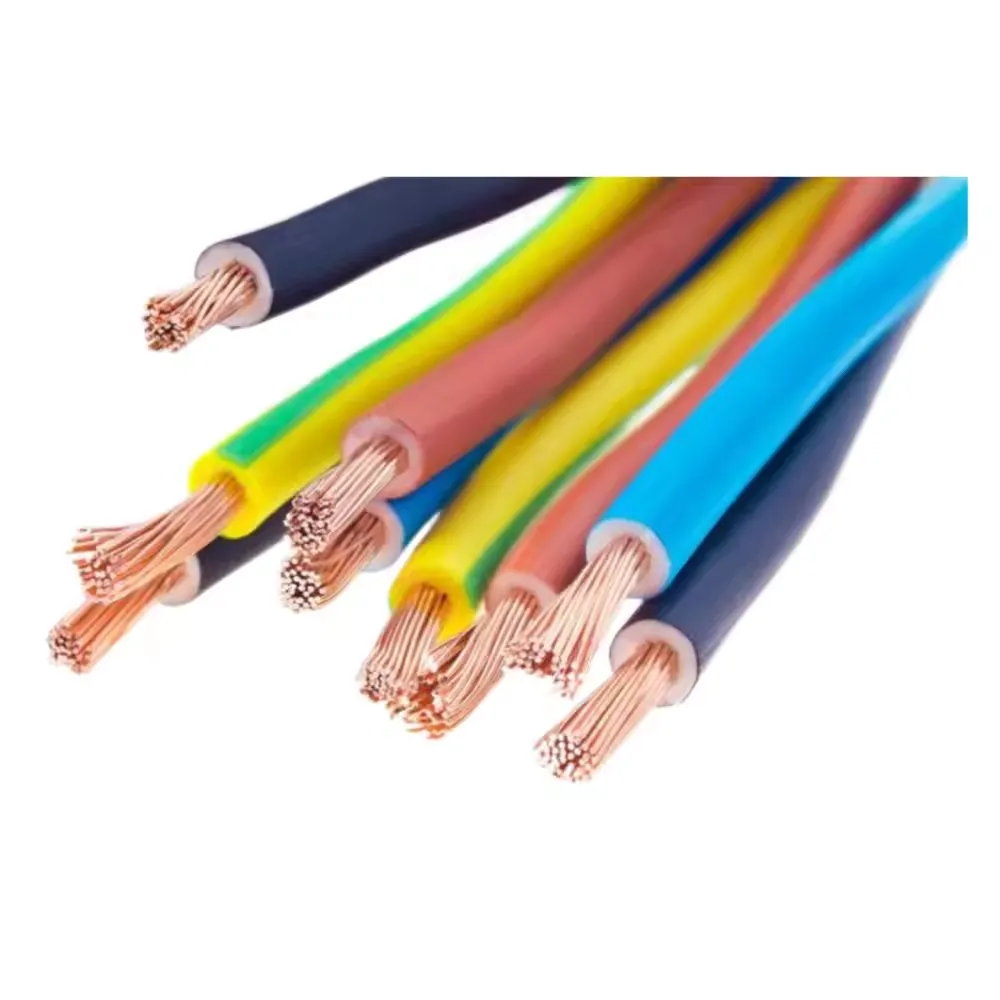Choosing the Best Wire for Home Electrical Wiring
Time: 2025-05-07 14:31:14
Source: Henan Province Jianyun Cable Co., Ltd.
Introduction
Selecting the appropriate wire for home electrical systems is crucial for safety, efficiency, and compliance with electrical codes. This guide explores the various types of wires suitable for residential use, their applications, and key considerations to ensure optimal performance.

Common Types of Residential Electrical Wire
Different wire types are designed for specific applications within a home. Understanding their characteristics helps in making informed choices.
-
Non-Metallic (NM) Cable: Commonly known as Romex, NM cable is widely used for indoor residential wiring. It consists of two or more insulated conductors and a bare ground wire, all encased in a plastic sheath. Suitable for dry, protected areas.
-
Underground Feeder (UF) Cable: Similar to NM cable but designed for underground and wet locations. Its solid plastic sheath provides enhanced moisture resistance, making it ideal for outdoor lighting and underground installations.
-
THHN/THWN Wires: These are single conductors with thermoplastic insulation and a nylon coating. THHN is suitable for dry locations, while THWN is rated for wet environments. Commonly used in conduit systems.
-
Armored Cable (AC) and Metal-Clad (MC) Cable: These cables have a protective metal sheath, offering increased durability and protection against physical damage. Often used in commercial settings or areas where additional protection is needed.
Understanding Wire Gauge and Amperage
Wire gauge determines the amount of current a wire can safely carry. The American Wire Gauge (AWG) system is used to specify wire sizes: the smaller the AWG number, the thicker the wire.
|
Wire Gauge (AWG)
|
Typical Amperage
|
Common Applications
|
|
14
|
15 Amps
|
Lighting circuits
|
|
12
|
20 Amps
|
General outlets
|
|
10
|
30 Amps
|
Air conditioners, water heaters
|
|
8
|
40 Amps
|
Electric ranges
|
|
6
|
55 Amps
|
Large appliances
|
It's essential to match the wire gauge to the circuit's amperage to prevent overheating and potential fire hazards.
Copper vs. Aluminum Wiring
The choice between copper and aluminum conductors impacts conductivity, cost, and safety.
-
Copper Wiring: Offers superior conductivity, durability, and resistance to corrosion. It's the preferred choice for most residential wiring due to its reliability.
-
Aluminum Wiring: Lighter and less expensive than copper but has higher resistance and is more prone to oxidation. Requires special connectors and installation techniques to ensure safety.
Installation Considerations
Proper installation ensures the longevity and safety of electrical systems.
-
Conduit Use: In areas exposed to potential damage or moisture, running wires through conduit (metal or plastic tubing) provides additional protection.
-
Code Compliance: Always adhere to the National Electrical Code (NEC) and local building codes, which dictate wiring methods, materials, and safety requirements.
-
Professional Installation: For complex projects or when in doubt, consult a licensed electrician to ensure installations meet all safety and code standards.
Conclusion
Choosing the right wire for home electrical systems involves understanding the types of wires available, their applications, and adhering to safety standards. Non-Metallic (NM) cable with copper conductors is commonly used for indoor residential wiring, while other types like UF cable and THHN/THWN wires serve specialized purposes. Always ensure that wire gauge matches the circuit's amperage and that installations comply with local codes. When in doubt, consult a professional electrician to guarantee safety and compliance.
